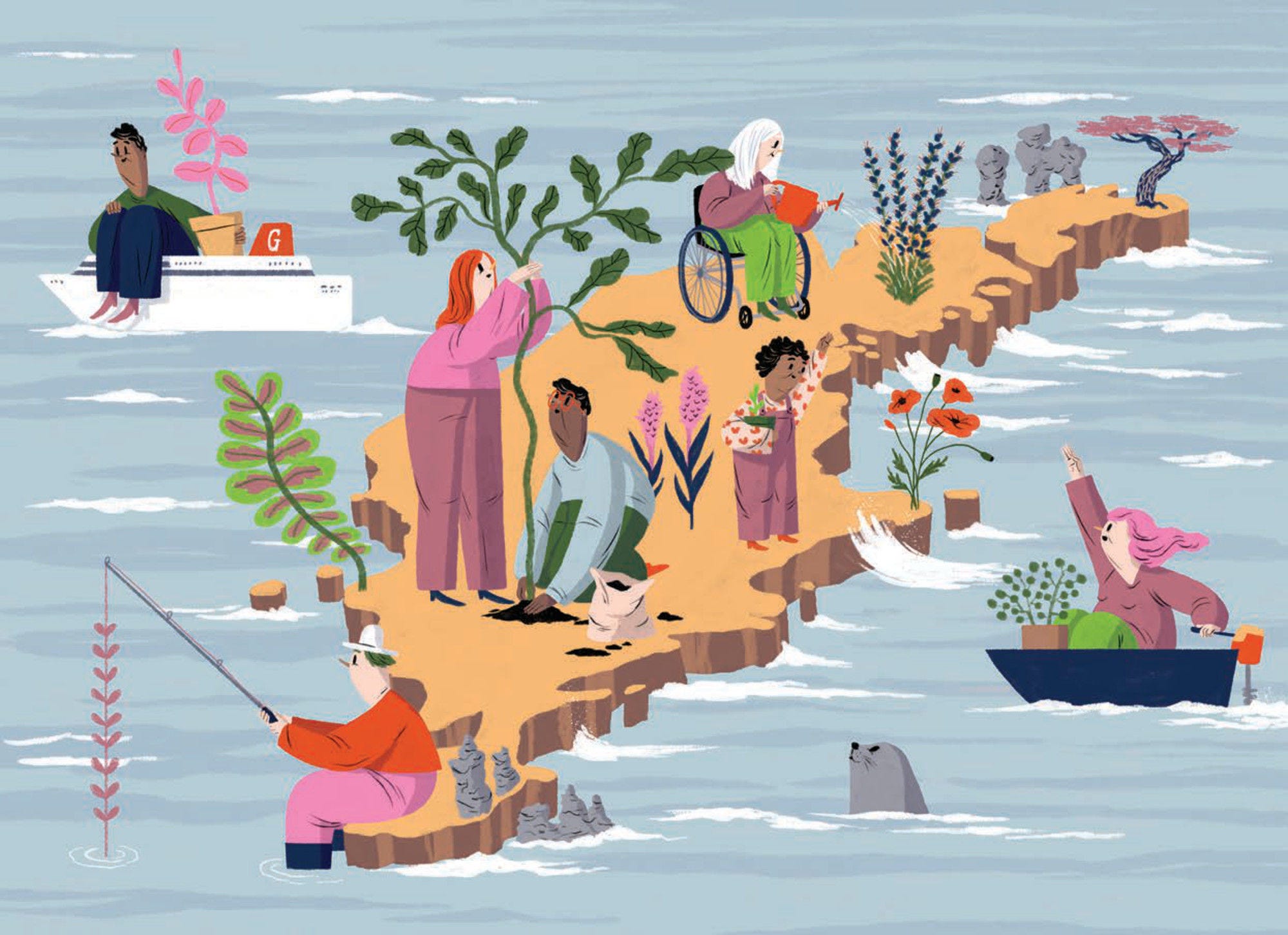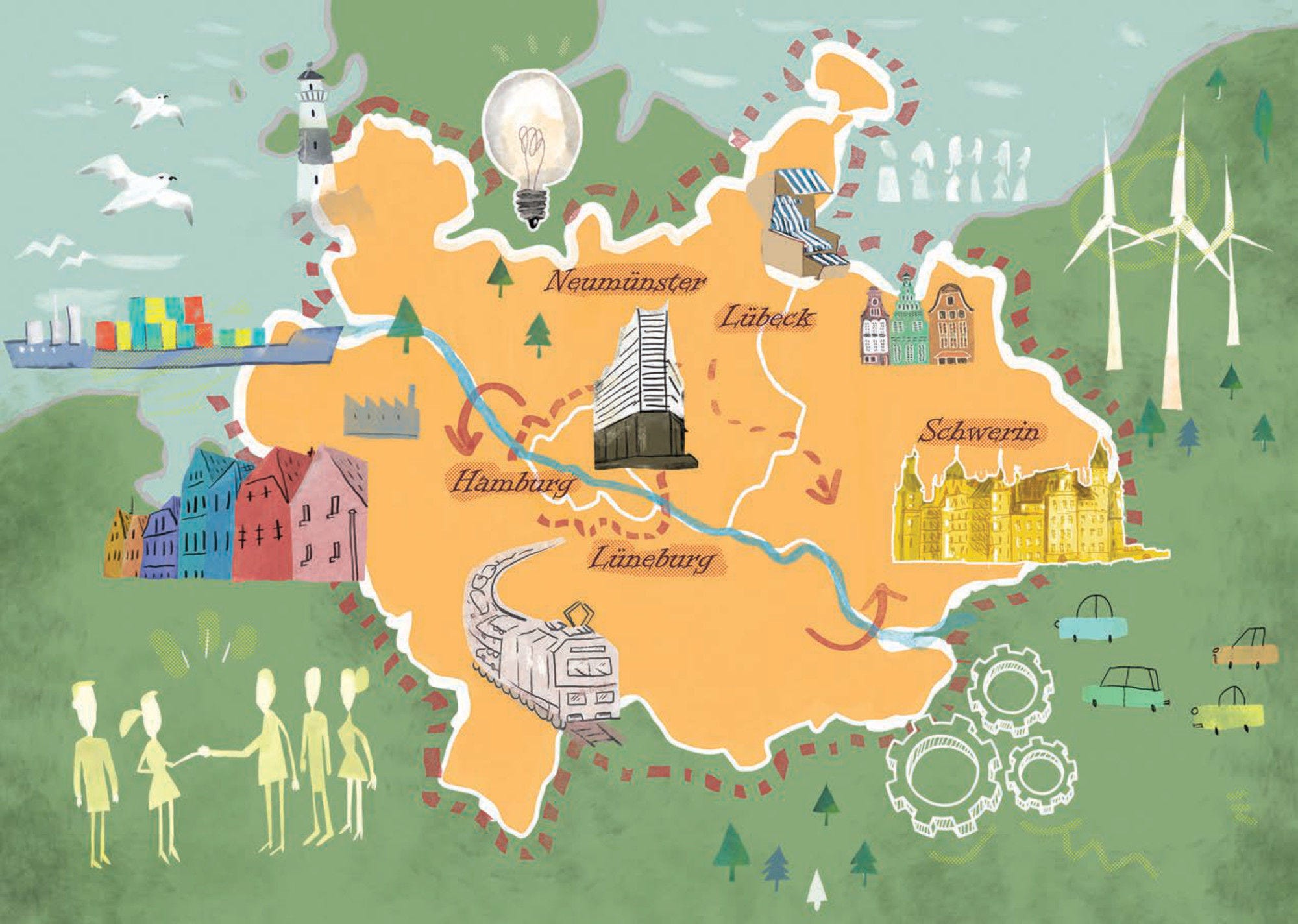Gotland is Sweden’s largest island and the largest island in the Baltic Sea. While Sweden has numerous Islands, Gotland’s development trajectory is unique in Sweden. It is the smallest region in the country in population size and economic base, and it is located the furthest from the mainland (90 km). As an island economy, it must overcome a number of development challenges including its small critical mass, remoteness to larger markets, vulnerability to climate change and limited administrative capacity. Nonetheless, it has a number of important assets, such as being an attractive destination, having a high potential for bio- and circular economy, a university providing research and education, very good broadband connectivity, and a strong local identity and vibrant civil society. This Territorial Review benchmark’s Gotland’s economic performance against comparable OECD regions to identify areas of untapped potential and develops recommendations in three main areas to help improve the quality of life for residents and support more efficient use of public resources. The first focuses on improving infrastructure planning, investments and delivery. The second on supporting the business environment and innovation eco-system and the third, on improving administrative and financing capacity to deliver quality services throughout the territory.
OECD Territorial Reviews: Gotland, Sweden

Abstract
Executive Summary
Assessment
Gotland’s development trajectory is unique in Sweden. While the country has numerous islands and long costal lines, the region of Gotland is by far the largest island (3 140 km²) and is located the furthest from the mainland (90 km). It is also the only territory that has both regional and municipal administrative responsibilities.
Gotland represents 0.8% of Sweden’s land area. With a population of about 60 970 (0.6% of Sweden’s national population), Gotland is the smallest region in terms of inhabitants and the smallest regional economy (contributing 0.43% of the national GDP) in Sweden. The region displays lower productivity and population growth than Swedish mainland regions but, across many indicators, it outperforms many comparable benchmark regions (EU islands and OECD remote rural regions). For example, since 2009, Gotland’s GDP per capita has grown by an average of 1.2% per annum, compared to 0.23% in peer island regions and a contraction (of -0.67%) in remote regions.
The island has a number of important advantages that positively influence its development. These include the presences of raw materials, a mild climate, a high potential for a connected, smart and renewable bioeconomy and circular economy (Gotland functions as a national testbed for renewable energy), a university providing research, education and training, very good broadband connectivity (88% of households have access to the fibre optic network) and a strong local identity and vibrant civil society. These make it an attractive location for tourists and internal migrants alike. Gotland’s population had been stagnating until 2016 but, since then, the population has grown (up 3.34% between 2016-19), largely due to inflows of working-age families with children from the mainland. The island also has significant policy and service delivery responsibilities relative to population size.
As an island economy, however, Gotland has a range of bottlenecks that, without action, can hold back well-being and sustainable regional development. These include its lack of critical mass and remoteness from larger markets, vulnerability to climate change (e.g. summer droughts and sea level rise), higher relative costs to deliver services and infrastructure, a largely seasonal economy and high elderly dependency ratios. In response, Gotland has put in place a well-developed regional development strategy Our Gotland 2040.
To further improve the quality of life for its residents and deal with persisting challenges, the study provides recommendations in three main areas. The first deals with improving infrastructure planning, investments and delivery. Some of Gotland’s infrastructure will soon be unable to provide an appropriate level of service as it nears the end of its useful life or in response to the increasing impacts of climate change and population growth. Gotland currently lacks a forward-looking approach to preparing for infrastructure needs dependent on external decisions (e.g. future energy connection to the mainland, the fate of the local cement plant, increased water shortages or military presence). The second focuses on the business environment, noting that Gotland enjoys one of the highest rates of start-ups in the country and a vibrant business community characterised by a “doer” mindset. Yet, small and micro businesses, which make up the majority of companies, struggle to innovate, reach off-island markets and access needed scale-up and growth support. In addition, low levels of post-secondary education and relatively high student drop-out rates make it difficult for employers to find highly skilled workers. Finally, the report focuses on improving administrative and financing capacity to make effective use of its limited own public resources (i.e. its small tax base) to deliver services throughout the territory. It also makes recommendations for addressing a lack of clarity in the distribution of responsibilities among levels of government resulting from administrative reforms that granted the region increased regional development responsibilities.
Key recommendations
Region Gotland needs to improve infrastructure planning, investment and delivery to stay ahead in a rapidly changing environment. The region should:
Adopt a more foresight-oriented approach to exploring and assessing the regional development consequences of decisions on issues that are outside of its legislative power, such as the fate of the local cement plant and the provision of a new cable to supply electricity.
Continue to align infrastructure planning and investment decisions to regional development priorities, identified in Our Gotland 2040. Investments should be determined based on their ability to generate economic, social and environmental returns. Region Gotland should consider a variety of future investments, including: expanding renewable energy capacity; working with the local agricultural sector to encourage water retention practices; increasing transport to other countries in the Baltic region to allow for more tourism and facilitate exports to new markets; increasing the supply of the housing stock for permanent residents to address the chronic shortage of moderate-income/rental housing; upgrading wireless capacity to full 5G across the island; and promoting the island as a remote working hub, attracting people from the mainland to work remotely, as well as providing more flexible work opportunities for local residents.
Allow for, and support, infrastructure solutions specific to local needs across the island and, where appropriate, involve local development companies in developing and implementing solutions and seek synergies with local service provision.
To boost productivity and add more value to existing sectors, the region should strengthen its business ecosystem, innovation capacity and skills development by:
Supporting the development of an inclusive business support ecosystem that provides support through all relevant stages of the business life cycle and that focuses on island-specific challenges, including the small local market and opportunities for off-island networks. For instance, Region Gotland should continue with plans on setting up an accelerator programme, introducing a mainland broker, increasing digital skills in small- and medium-sized enterprises (SMEs) and promoting youth entrepreneurship.
Adding value to sectors defined in its smart specialisation strategy and further developing niche markets that allow for strategic diversification of the local economy. Specifically, the region should increase exchange and collaboration among existing initiatives and sectors, continue to nurture a farm-to-table culture, develop opportunities for game design students to transition into professional game developers and work on a strategy for its creative and cultural sectors. It should also continue to combine research with regulatory framework conditions to allow for experimentation and applied research on the island.
Addressing future labour market and skills needs by reinforcing the anticipatory planning and strategic understanding of future skills needs, supporting up- and reskilling through local SMEs and setting up experience-sharing networks among teachers to attract young teachers to rural places.
To effectively implement its regional development strategy, make efficient use of resources and better serve the diverse needs of local communities, the region, in collaboration with other stakeholders, should:
Reinforce the presence of administrative and other services throughout the island by creating territorial delegations or establishing a network of access points to services and continuously develop the regional government’s management capacities and digital skills, for instance, by establishing the desired skillset for a future and strengthened collaboration with local development companies to leverage on their capacities to make a positive impact on rural communities on Gotland.
Limit the impact of a volatile and potentially limited own-source revenue stream, due in part to the seasonality associated with tourism-generated revenues and in part to the island hosting a significant number of vacation-time residents rather than permanent residents. Further reinforcing its attractiveness and branding initiative as a means to encourage new businesses and the growth of existing businesses on the island could help address this matter.
Build Region Gotland’s strategic capacity in managing European Union funds, particularly cohesion policy funds, to better link project call design with the needs and project design and implementation ability of island beneficiaries. This can further support the effective use and absorption of funds.
Strengthen vertical co-ordination to ensure place-based and island-proof policies, clarify assignments among levels of government by establishing a working group that brings together Region Gotland and the different national agencies with a presence on the island, as well as enhancing accountability by introducing monitoring and evaluation mechanisms. It is important to ensure that stakeholders, including residents, know which level of government is responsible for specific activities, how these activities are implemented and how resources are used. An interoperated monitoring dashboard bringing together all agencies involved in regional development could be one such tool.
In the same series
Related publications
-
 21 November 2024
21 November 2024 -
30 July 2024
-
 Country note10 July 2024
Country note10 July 2024











